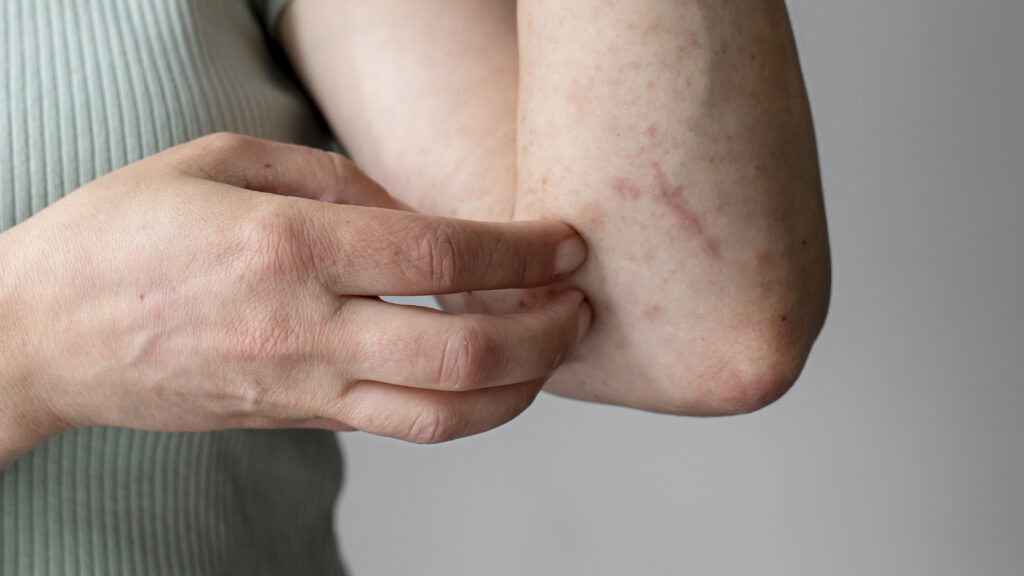- drambalkar@yahoo.co.in
- Mon - Sunday 10:00 AM - 02:00 PM
What is Pustular Psoriasis?
Pustular psoriasis is a rare and severe form of psoriasis that is characterized by the sudden appearance of pus-filled bumps (pustules) on the skin. These pustules can be very painful and can occur anywhere on the body, but they are most common on the palms of the hands, soles of the feet, and the trunk.

The exact cause of pustular psoriasis is unknown, but it is thought to be triggered by a combination of factors, including:
- Stress
- Medications, such as lithium or steroids
- Something that irritates your skin, like a topical cream or harsh skin care product
- Too much sunlight
- Infection
- Alcoholism
- HIV/AIDS
- Hormones
- Severe sunburn
Pustular psoriasis can be a very serious condition, and it is important to see a doctor right away if you think you may have it. Treatment will vary depending on the severity of your symptoms, but it may include:
- Medications, such as steroids, methotrexate, or biologics
- Phototherapy
- Hospitalization
The exact cause of pustular psoriasis is not fully understood, but it is believed to be related to an overactive immune system. Triggers for pustular psoriasis can include stress, infections, certain medications, and the abrupt discontinuation of systemic corticosteroids.
pustular psoriasis Treatment typically involves a combination of topical treatments, systemic medications (such as oral steroids or immunosuppressants), and phototherapy. Hospitalization may be necessary for severe cases. The goal of treatment is to reduce inflammation, manage symptoms, and prevent complications. Due to its severity, pustular psoriasis requires close medical supervision and ongoing care. If you suspect you have pustular psoriasis or experience symptoms of this condition, it’s essential to consult a ayurvedic skin specialist for proper diagnosis and treatment.
Conclusion
pustular psoriasis is a severe skin condition marked by painful pus-filled bumps. Its exact cause is unclear, but triggers can include stress, infections, and certain medications. Treatment involves various approaches, including topical treatments, medications, and sometimes hospitalization for severe cases. If you suspect pustular psoriasis, seek immediate medical help for diagnosis and a personalized treatment plan to manage symptoms and complications effectively. Your health is paramount when dealing with this condition.

Get in Touch with us Today to Begin Your Journey of Transformation

Contact Us
- Dr.Ambalkars Aayurvedic Research Centre, ARC Bhavan, Vijay Vihar Complex, Evershine City, Last Stop, Vasai (E)
- drambalkar@yahoo.co.in
- +91 9320193201
- +91 9766362776

